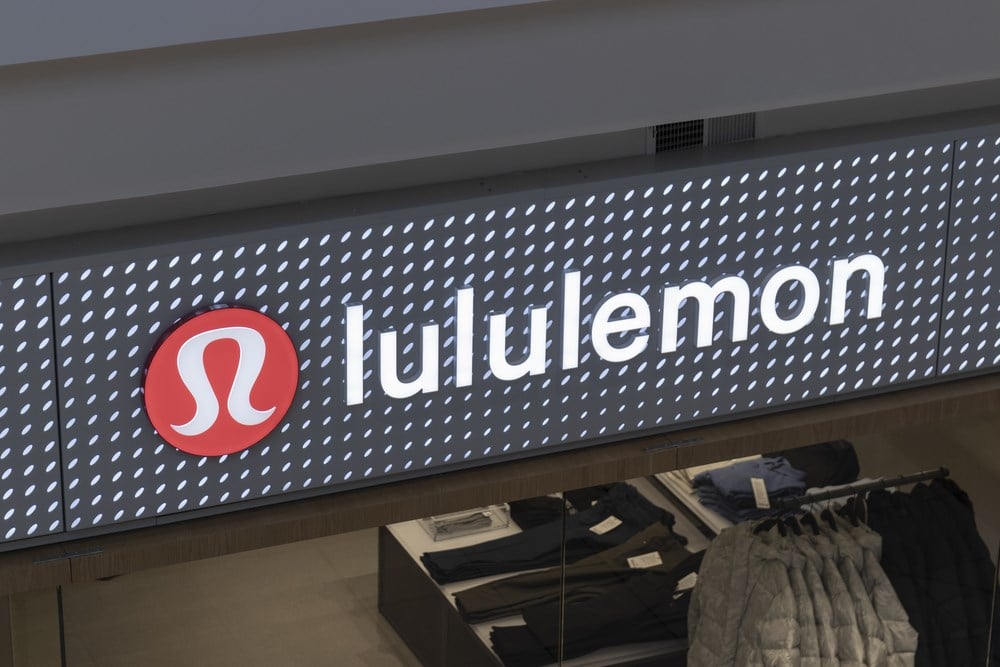
If you can't beat them, join them, right? It would not be too far-fetched to imagine that these were the last words spoken at Peloton (NASDAQ: PTON) and its latest board meeting, or at least a close derivative of this expression, considering the chain of events that have transpired recently.
Considering that the stock has underperformed major rival Lululemon Athletica (NASDAQ: LULU) by as much as 57% on a year-to-date basis, this 'strategic' move begins to make a lot more sense on paper. However, the underlying value should warrant a second look for shareholder implications.
During a year where technology stocks have been on a rip, while apparel stocks have poorly suffered, Peloton and Lululemon have proved to be total respective opposites in behavior and performance about their sectors, which is why their newly announced collaboration seems brighter than some may think.
What's Driving the Peace Treaty?
Formerly competing for a similar set of demographics and market share, these two names have decided to come together at what seems to be the perfect time. You see, it was not until Peloton's market capitalization fell to its all-time low of $1.8 billion that they asked for help.
And who better to ask than Lululemon, who has outperformed bigger, more entrenched names in the space, such as Nike (NYSE: NKE), by as much as 38% on a year-to-date basis?
The success of Lululemon's brand can be compared to the quickly growing market share in Target (NYSE: TGT) and its social growth blueprint.
Most customers at Lululemon are young fitness enthusiasts who - more likely than not - have a heavy tendency to share their habits and purchases on social media—considering that Peloton depended on this social acceptance for its success, asking the pros for an alliance only made sense.
The timing could not have been better, as Lululemon had recently thrown in the towel on its mirror products, seeing that it made no economic sense to keep the line alive. At the same time, Peloton's clothing line saw minimal traction and posed similar financial risks to the company.
So now, in a wild west stand-off fashion, both names have agreed to step off each other's feet. Lululemon will now become the exclusive apparel provider for Peloton's clothing products. At the same time, Peloton classes will now be hosted within Lululemon's online network. Genius.
Play Out the Dominoes
So, what does this mean for the brands and their respective upside? Well, it looks like Peloton is taking more upside in this deal. And in case this seems like a dismissive and quick assumption, double-check analyst sentiment with these two.
A current consensus price target of $10.6 a share for Peloton stock implies a massive 110.3% upside from today's prices. On the other hand, Lululemon's price target of $441.9 a share would only represent a 14.6% upside, bringing this assumption home.
Why such a big gap? Lululemon may bump their sales and reach by low single-digits, exposing their brand to Peloton's audience. Conversely, Peloton can scale its content massively by tapping into Lululemon's bigger audience, which is growing like wildfire.
Why would Lululemon willingly give Peloton this free pass? Shouts the greedy shareholder at the back of the meeting. A crazy assumption could be made that Lululemon is testing Peloton's integration, feeling the potential benefits of the two working together.
If this 'test drive' yields the right benefits, markets should not be surprised to wake up to the news of Lululemon buying out Peloton. With the former's stock near an all-time high price and the former near an all-time low, it would make total sense.
Picking a Horse
There is, undeniably, value to be unlocked within the two brands and their combination. However, here you have a tale of two opposites regarding risk and reward.
Backing Lululemon is the apparent low-risk and reward route, at least in the short term. Considering that Lululemon's business is an industry leader fundamentally, the long-term is nearly 100% secure.
If retirement is still too far away, risking more on Peloton may be a potential consideration. Knowing that the company could jump on favorable sales announcements boosted by Lululemon's platform or an outright buyout, there is serious upside to be had in this stock.
However, suppose things don't play out as they should. In that case, sales expectations disappoint, and Lululemon drops the collaboration, investors are looking at holding onto another underperforming year for this stock.
The yin and yang are balanced as they should be, leaving the savvy investor to pick according to portfolio goals and tolerances.














